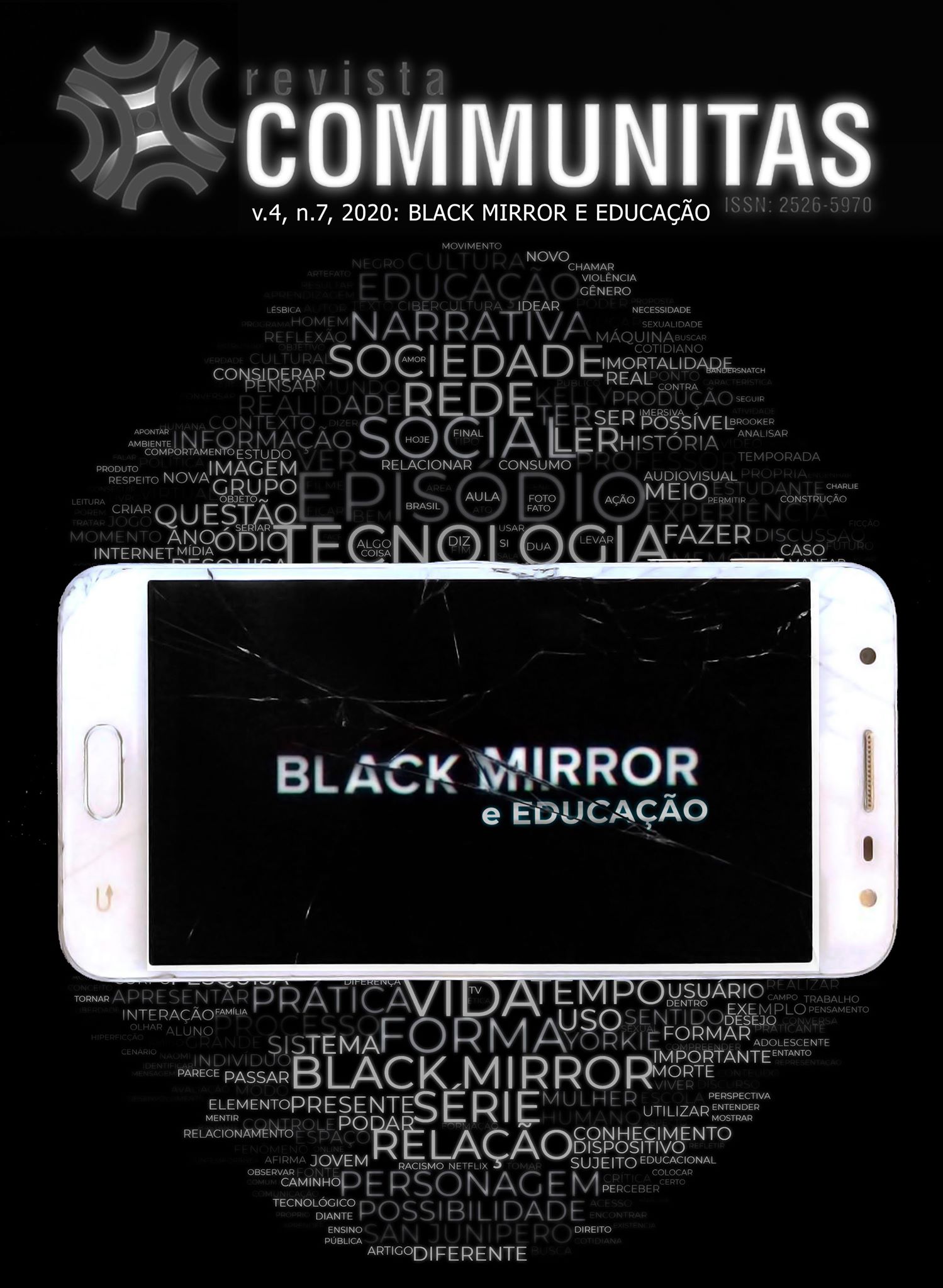BLACK MIRROR, INTERNET OF MINDS AND EDUCATION
HOW WILL WE MIGRATE FROM THE CULTURE OF THE EPHEMERAL TO THE SUPER MEMORIES OF ARTIFICIAL CEREBRALITY?
Keywords:
Black Mirror. Education. Internet of minds. Artificial cerebrality.Abstract
In the face of the concern that the Black Mirror series promotes, reflections about the articulation between the internet of minds, the artificial cerebrality (SQUIRRA, 2016b) and the contemporary education were realized. This article is included in the context of a Master's thesis on Cybervideos in Online Education (MARTINS, 2017). The objective of the present study is to reflect on the phenomena of cyberculture of the episode "The Entire History of You", from the Black Mirror series, that invite us to think about contemporary education. From the method of Research-formation in Cyberculture (SANTOS, 2014) we developed a formative ambience in the elective course Cineclube, of the Pedagogy course of the University of the State of Rio de Janeiro (UERJ). The conversation circle was recorded, enabling the emergence of narratives that contributed to the understanding that the evolution of artificial cerebrality can contribute to the production of knowledge and educational uses by enhancing teaching and learning processes contextualized with cyberculture education.
Downloads
References
FREIRE, Paulo. Extensão ou comunicação? 7ª ed. Rio de Janeiro: Paz e Terra, 1983.
____________. Pedagogia da autonomia: saberes necessários à prática educativa. São Paulo: Paz e Terra, 1996.
LAVE, Jean. Aprendizagem como/na prática. Horizontes Antropológicos, Porto Alegre, ano 21, n. 44, p. 37-47, jul./dez. 2015
LEMOS, André. Isso (não) é muito Black Mirror: passado, presente e futuro das tecnologias de comunicação e informação. Salvador: EDUFBA, 2018.
____________.Cibercultura: Tecnologia e vida social na cultura contemporânea. Porto Alegre: Sulina; Meridional, 2002.
LINS, Aline. Ação e cooperação: vida em rede e as alterações de uma sociedade tecnológica comprometida. In: SOUZA, Cláudio Manoel Duarte de; FIALHO, Carolina... [et al.]. (orgs.). Link livre ebook_2arte: educação, tecnologias, comunicação e multimeios. Santo Amaro, BA: UFRB, 2016.
MELO, M. C. H. de; CRUZ, G. de C. Roda de conversa: uma proposta metodológica para a construção de um espaço de diálogo no ensino médio. Revista Imagens da Educação, v. 4, n. 2, p. 31-39, 2014.
OLIVEIRA, Inês Barbosa; ALVES, Nilda (orgs.). Pesquisa nos/dos/com os cotidianos das escolas. 3ª ed. Petrópolis: DP&A, 2008, p.13-38.
SANTOS, Edméa O. Pesquisa-formação na cibercultura. 1. ed. Santo Tirso: Whitebooks, 2014. V. 1. 202p.
SQUIRRA, Sebastião. A informação é essencial à vida, às máquinas e à comunicação. Revista Lumina (UFJF Online), v. 10, p. 1-14, 2016a.
SQUIRRA, Sebastião (org.). Cibertecs: conceitos, interações, automações, futurações. São Luís, MA: LabCom Digital, 2016b.
SOUZA, Maria Izabel et al. Produção de microvídeos para dispositivos móveis na temática do Código Florestal brasileiro. EAD em Foco. Revista de Educação a Distância Rio de Janeiro, v. 6, p. 87-101, 2016.
TOMÉ, Vítor Manuel Nabais; SOARES, Maria do Carmo Tomé. Educação para os media: atividades de análise e produção de mensagens na disciplina de português. In: ROSADO, Luiz Alexandre da Silva; FERREIRA, Giselle Martins dos Santos (orgs.). Educação e tecnologias: parcerias. Rio de Janeiro: Editora Universidade Estácio de Sá, 2015, v. 4, p. 259-299.
Downloads
Published
How to Cite
Issue
Section
License
The Copyright for articles published in this magazine belongs to the author, preserving the rights of first publication for the Communitas Magazine. Because they appear in this publicly accessible journal, the articles are free to use, with their own attributions, in educational and non-commercial applications.
























